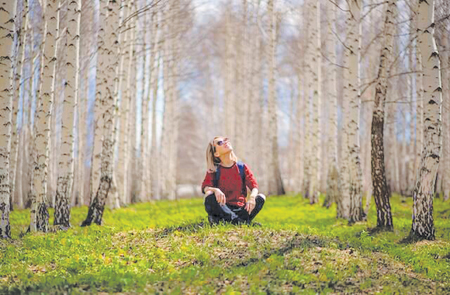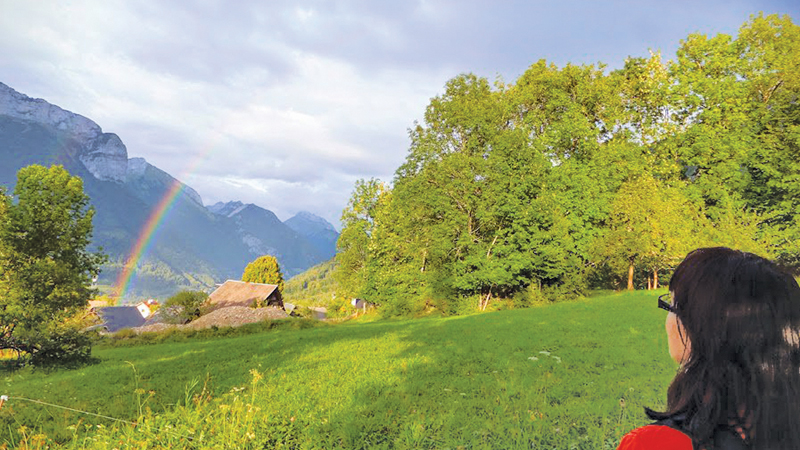In our rapidly advancing world, characterised by technological innovations and urban landscapes, the call to stay close to nature becomes increasingly crucial. The intricate relationship between humans and the natural world has been an integral part of our existence for centuries. As we are struggling with the complexities of modern life, the importance of reconnecting with nature is more evident than ever.
In the relentless march of the progress and the hustle of our modern lives, the timeless embrace of nature beckons as a sanctuary for our well-being. Humanity’s ancient kinship with the natural world is a fundamental aspect of our existence, shaping our physical, mental and emotional states throughout history. As we go through the intricate tapestry of the contemporary era, the imperative to stay close to nature emerges as a guiding principle for a harmonious and healthy life.
The palpable disconnection from nature in the face of technological leaps and urban sprawl underscores the urgency of revisiting our roots. The concrete jungles we inhabit, while symbols of human achievement, often mask the symbiotic relationship we share with the environment. This article delves into the manifold reasons why the call to stay close to nature is not just a romantic notion but a vital prescription for the enhancement of our holistic well-being.
Physical Health benefits
Our bodies thrive on fresh air, and nature provides an abundant source of it. Trees and plants release oxygen, essential for our respiratory health, and spending time outdoors allows us to breathe in unpolluted air, contributing to overall well-being.
 Exposure to natural sunlight is a natural way to absorb Vitamin D, crucial for bone health and immune function. Regular outdoor activities enhance our skin’s ability to produce Vitamin D, reducing the risk of deficiencies and associated health issues.
Exposure to natural sunlight is a natural way to absorb Vitamin D, crucial for bone health and immune function. Regular outdoor activities enhance our skin’s ability to produce Vitamin D, reducing the risk of deficiencies and associated health issues.
Nature invites movement. Whether it’s hiking, jogging, or simply taking a leisurely stroll, being close to nature encourages physical activity. This, in turn, helps maintain a healthy weight, reduces the risk of chronic diseases and improves cardiovascular health.
Nature has a profound impact on stress reduction. The calming sounds of rustling leaves, chirping birds and flowing water help lower cortisol levels, promoting a sense of relaxation and well-being.
Exposure to natural settings has been linked to increased creativity and problem-solving skills. The tranquility of nature provides an ideal environment for the mind to wander, fostering innovative thinking and imagination.
Time spent in nature has been associated with improved concentration and attention span. Nature serves as a refuge from the constant stimuli of modern life, allowing the brain to recharge and focus better upon return to daily tasks.
Emotional well-being
Nature encourages a sense of connectedness, not only with the environment but also with oneself. Practising mindfulness in natural settings promotes emotional balance, self-awareness and a deeper appreciation for the present moment.
Studies have shown that spending time in green spaces reduces symptoms of anxiety and depression. Nature serves as a natural antidepressant, offering a therapeutic escape from the pressures of daily life.Nature provides a neutral and serene backdrop for social interactions. Shared outdoor activities promote bonding and strengthen relationships, contributing to a supportive social network, a crucial component of emotional well-being.
Being close to nature fosters a sense of responsibility and environmental awareness. People who have a strong connection to the natural world are more likely to engage in eco-friendly behaviour and support conservation efforts.
The more connected we are to nature, the more likely we are to adopt sustainable living practices. This includes conscious consumption, reduced waste and an overall commitment to preserving the environment for future generations.
In a world dominated by technology and urbanisation, the intrinsic link between humans and nature must not be overlooked. Staying close to nature is not merely a luxury but a necessity for our physical, mental and emotional well-being. As we recognise the profound benefits that nature provides, it becomes imperative to incorporate it into our daily lives, ensuring a harmonious balance between the modern world and the natural environment.









